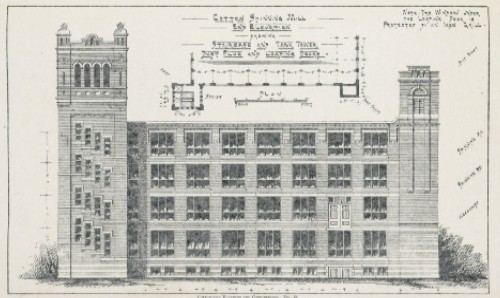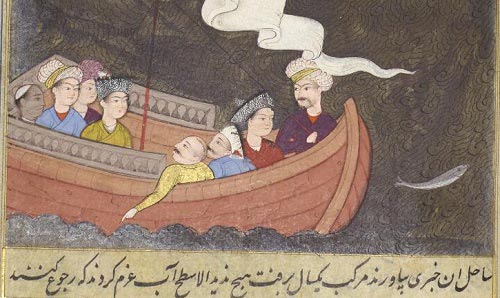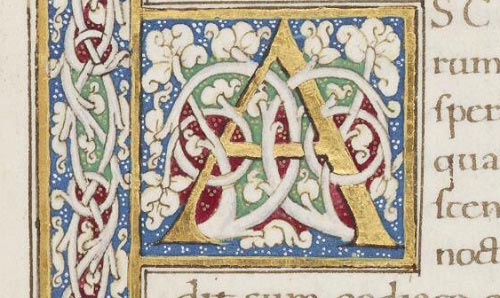
Economic and Industrial History Collections
The Library holds a wealth of primary sources for the study of Britain’s economic and industrial history.

From cotton to computers, from dams to dyes, with particular strengths in textiles, railways, engineering, newspapers, pharmaceuticals and dyestuffs. Many of these collections date from the 19th century through to the middle of the 20th. More recent collections include the History of Computing Collections which document the post-war development of the computer industry and its important connections to Manchester. Alongside business records, the Library holds the records of several trade union and employer organisations.
Textiles
Major sources for the textile industry are the archives of individual cotton manufacturers such as: Samuel Oldknow (1756–1828), one of the most important figures in the cotton industry during the early Industrial Revolution; McConnel & Kennedy, the largest cotton spinning firm in Manchester in the early 19th century; Sun Mill, first of the so-called 'Oldham Limiteds’; Rylands & Sons, the most successful cotton firm in Britain in the late 19th century; W. M. Christy & Sons, the famous towel manufacturers from Droylsden; the Ashworth Cross Family, owners of the Ashworth cotton enterprise north of Bolton; and the Fielden Brothers of Todmorden, West Yorkshire. The Greater Manchester Mill Survey Archive contains information on all textile mills still extant in the county during the 1980s, many of which have subsequently disappeared. These substantial archives are supplemented by a variety of smaller collections, such as the papers of Samuel Hird (1878-1956), who rose from being a child worker in an Oldham mill to become a senior factory inspector.
Trade union archives from the cotton industry include the Bolton and District Operative Cotton Spinners’ Provincial Association and the Amalgamated Association of Operative Cotton Spinners. These are counterbalanced by the archive of the Ashton Textile Employers’ Association and the Oldham Textile Employers’ Association.
The Library holds numerous printed sources which support its rich holdings of archive materials relating to the textile industry, such a set of the Cotton Factory Times.
Other industries
There are significant holdings relating to: coal and iron (Thomas Botfield & Co., Sir William Boyd Dawkins); pharmaceuticals (James Woolley, Sons & Co. and Manchester Pharmaceutical Association); chemicals and dyestuffs (ICI Dyestuffs Division and its predecessors); newspapers (Guardian, formerly Manchester Guardian); electro-chemistry and metallurgy (R. S. Hutton); engineering (Simon Engineering Group, William Dale & Sons and the B. R. Faunthorpe collection relating to Joseph Whitworth); railways and mining in central and southern Africa (Tanks Group); ceramics (Josiah Wedgwood); international trade (Heald Family Papers, Hodgson, Robinson & Co., John Micklethwaite, Owen Owens and Pietro Tealdi); and watermills and windmills (E. Mitford Abraham).
The substantial archives of consulting geologists Sir William Boyd Dawkins (1837-1929), Edgar Morton (1898-1973) and Peter Rowe (1922-1997) are relevant to a wide range of industries for which they provided consultancy services, especially civil engineering, construction, water supply and electricity generation.
Trade union archives date from the earliest years of the mass organization of labour and cover textiles (see above), engravers (Amalgamated Union of Engravers to Calico Printers and Paper Stainers, and the United Society of Engravers), and professional and clerical staff. Trade and employers’ organizations include the Manchester Pharmaceutical Association.
The Library also holds a collection of documents submitted to the public inquiry held between June 1994 and March 1995 to consider the planning application for the construction of a second runway at Manchester Airport, and the archives of two committees charged with examining and improving accounting standards and auditing practices in the 1970s and ’80s.
Special attention should be drawn to the Kenneth Brown Railway Collection, and to several associated collections. These contain a wealth of information on all aspects of railway history and operations, and in particular on the early development of railways in Britain. They include monographs, periodicals, Parliamentary papers and plans, and much ephemera such as tickets and timetables, from the 1830s onwards.
Printed sources include numerous individual works on general economic and industrial history, and on specific industries such as engineering and chemical manufacture.
Physical collections
Physical collections
- Windmill and Watermill Collection of Edward Mitford Abraham
- Accounting Standards Committee Archive
- Amalgamated Association of Operative Cotton Spinners Archive
- Ashton Textile Employers' Association Archive
- Ashworth Cross Family Papers
- Association of Certifying Factory Surgeons Archive
- Auditing Practices Committee Archive
- Bolton and District Operative Cotton Spinners' Provincial Association Archive
- Botfield Papers
- Vivian Bowden Papers
- W. M. Christy and Sons Ltd Archive
- Clayton and Morris Papers
- Dale Papers
- Sir William Boyd Dawkins Papers
- Engravers' Trade Unions Archive
- B. R. Faunthorpe Papers relating to Joseph Whitworth
- Fielden Brothers Papers
- Greater Manchester Mill Survey Archive
- Guardian (formerly Manchester Guardian) Archive
- Derek Guttery Papers
- Heald-Hall Family Papers
- Samuel Hird Papers
- History of Computing Collection
- Hodgson, Robinson and Company Archive
- Robert Salmon Hutton Papers
- ICI Dyestuffs Division Archive
- McConnel and Kennedy Archive
- Manchester Airport Second Runway Inquiry Archive
- Manchester Pharmaceutical Association Archive
- Micklethwaite Correspondence
- Edgar Morton Papers
- Nicholson Papers
- Oldham Textile Employers' Association Archive
- Oldknow Papers
- Owen Owens and Son Archive
- Railway Collections
- Peter Rowe Archive
- Rylands and Sons Archive
- Simon Engineering Group Archive
- Sun Mill Archive
- Tanks Group Archive
- Tealdi Correspondence
- George Unwin Papers
- Wedgwood Correspondence
- James Woolley, Sons and Co. Ltd Archive
Digital collections
Digital collections
- Maps and plans of the Manchester Ship Canal in Library Digital Collections
- Manchester Civic Week (1926) and Manchester Corporation Centenary (1938) in Library Digital Collections. Both supplements published by the Manchester Guardian and include rich detail on Manchester industries and trades.
- Centenary of Rylands and Sons in Library Digital Collections
- Women in Wartime in Manchester Digital Collections

Exploring subject areas
An overview of our Special Collections, including information about the background and history of our holdings.

Special Collections A-Z
Explore the Special Collections through the collection names and descriptions using our searchable A-Z tool.
